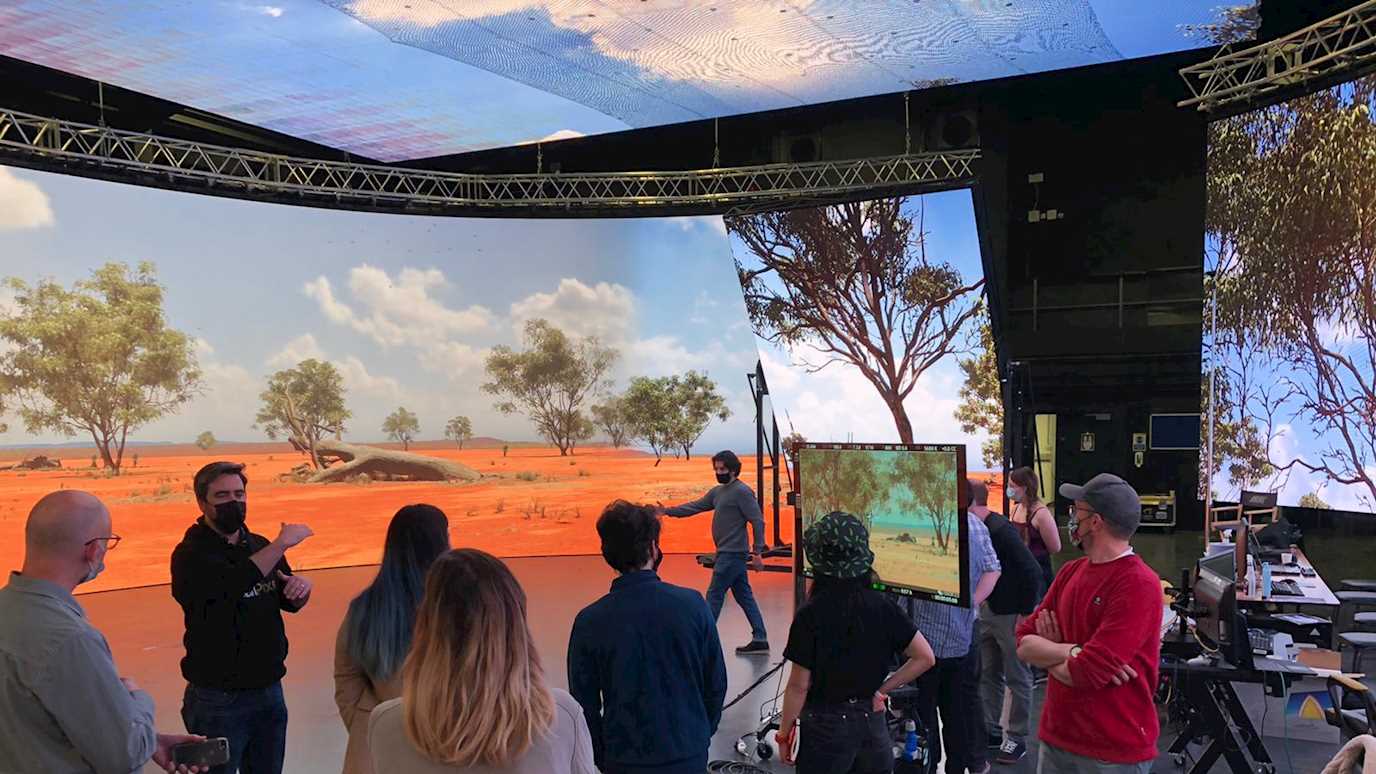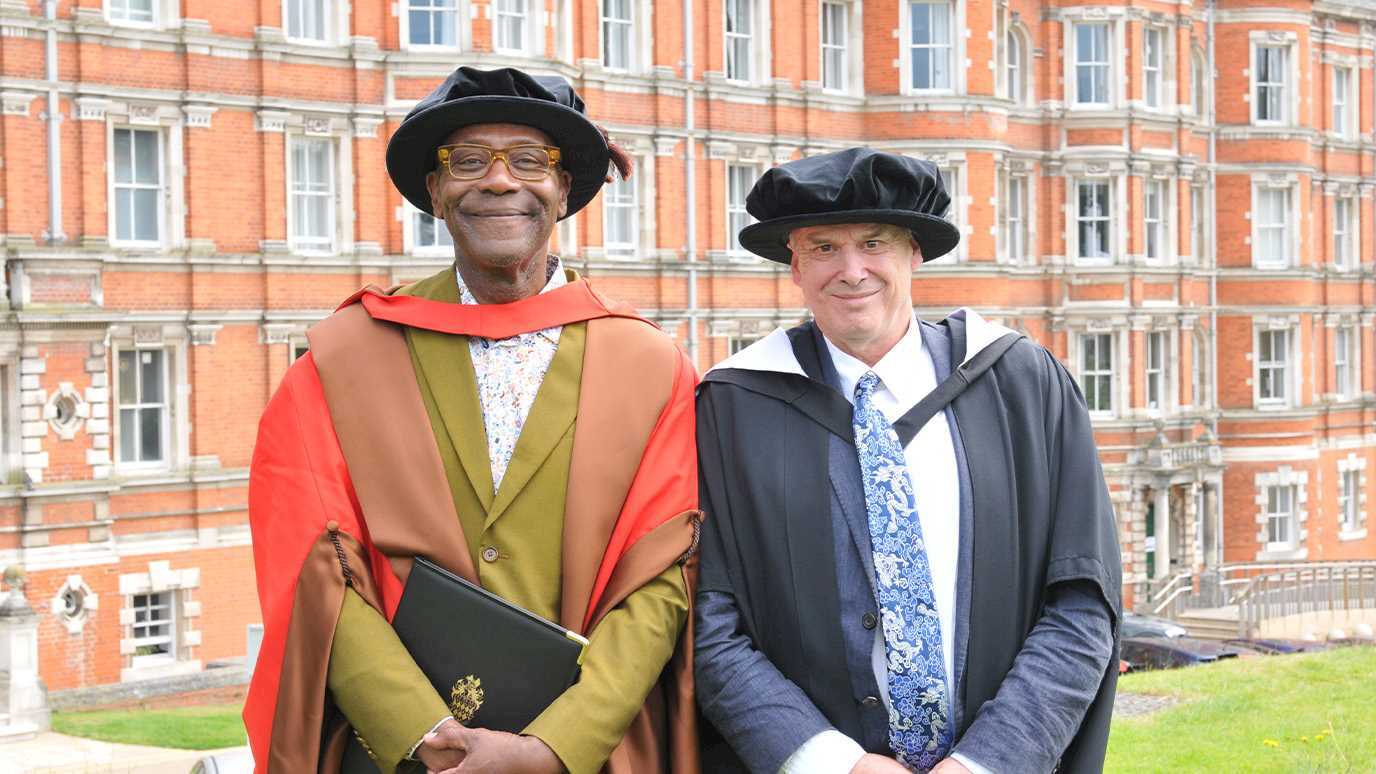StoryFutures Academy: The National Centre for Immersive Storytelling has released the findings of a report providing a map of the Virtual Production (VP) skills needed across the Film and TV Industry. The interim VP Skills Report identifies both the hard and soft skills required to translate innovation practice into economic growth.

LED Live-action volume: panels of LED lights display the scene, at the StoryFutures Academy/Final Pixel VP Bootcamp, 2021 at ARRI Mixed Reality Studio. Image courtesy of ARRI / CT Group.
StoryFutures Academy: The National Centre for Immersive Storytelling has released the findings of a report providing a map of the Virtual Production (VP) skills needed across the Film and TV Industry. The interim VP Skills Report identifies both the hard and soft skills required to translate innovation practice into economic growth.
Virtual Production (VP) is becoming a ubiquitous methodology for the achievement of high-quality film, television and media productions which combines virtual and augmented reality with computer generated imagery. All this is made possible by real-time game-engine technology, exemplified by high end Hollywood productions such as The Mandalorian and in television by the BBC’s Virtual Production presentation studio for the Tokyo Olympics.
The Virtual Production Skills Mandala [1], a dynamic VP skills map published as part of this skills report, represents the VP-specific roles and skills emerging today and into the future. This can be used to navigate how VP changes the way key Departments operate - both internally and with other Departments.
Throughout this research, which was conducted during the summer of 2021, the report found an industry that recognised that whilst current costs were high, Virtual Production would be normalised and correspondingly cheaper within five years. However, ‘hands-on’ experience is still low and the appetite for training far outstrips demand.
The report has identified many gaps and pain points in the workflows and pipelines of production/postproduction talent in the UK, revealing significant skills shortages that would benefit from immediate and direct action:
• On-the-job training: Professional placements, CPD training and extension of VFX-Houses successful Academies schemes.
• Improve on-set understandings of roles, responsibilities and communication between departments: CPD test shoots de-risk the learning process.
• Lack of common language: Create an open source ontology and a ‘Play Book’ of common VP concepts.
As the then Minister for Creative Industries Caroline Dinenage commented, to ensure the UK stays ahead of the creative curve, there is a need to “develop our world class screen workforce [to] help the UK’s film and TV sectors build back better” [2]
Professor James Bennett from the Department of Media Arts at Royal Holloway, and Director of StoryFutures and Co-Director of StoryFutures Academy commented: “Virtual Production is a game-changing set of technologies and production methods for film, television, games and live performance that will radically shift how we make these content forms and the content audiences will experience. The UK can lead the way on this global innovation opportunity if we rapidly upskill, train and invest in the R&D capability of the amazing creatives working across our industries. This report points the way forward to grab the Virtual Production opportunity and ensure the UK is at the forefront of innovation and creative industries success”
Julie Peng, Director of Production / Talent Strategy ILMxLAB added: “Unreal is definitely an area where there’s a talent shortage, and Technical Artists for us is the most challenging position to fill. The talent base is growing exponentially which is fantastic. There have been open positions with us at ILMxLAB, and these are R&D roles for VP, that have been open for literally months and months. These positions require specialist high-end scientists and engineers who are interested in melding different mindsets, and it is an interesting skills gap that will be there for a while.”
[1] The Virtual Production Field Guide, Volume 2, Epic Games, 2021, p.148. See: https://cdn2.unrealengine.com/Virtual+Production+Field+Guide+Volume+2+v1.0-5b06b62cbc5f.pdf
[2] Quoted in Televisual, 10/02/21, “National Standards Plan for Virtual Production”, https://www.televisual.com/ news/national-standards-to-be-developed-for-virtual-production/























